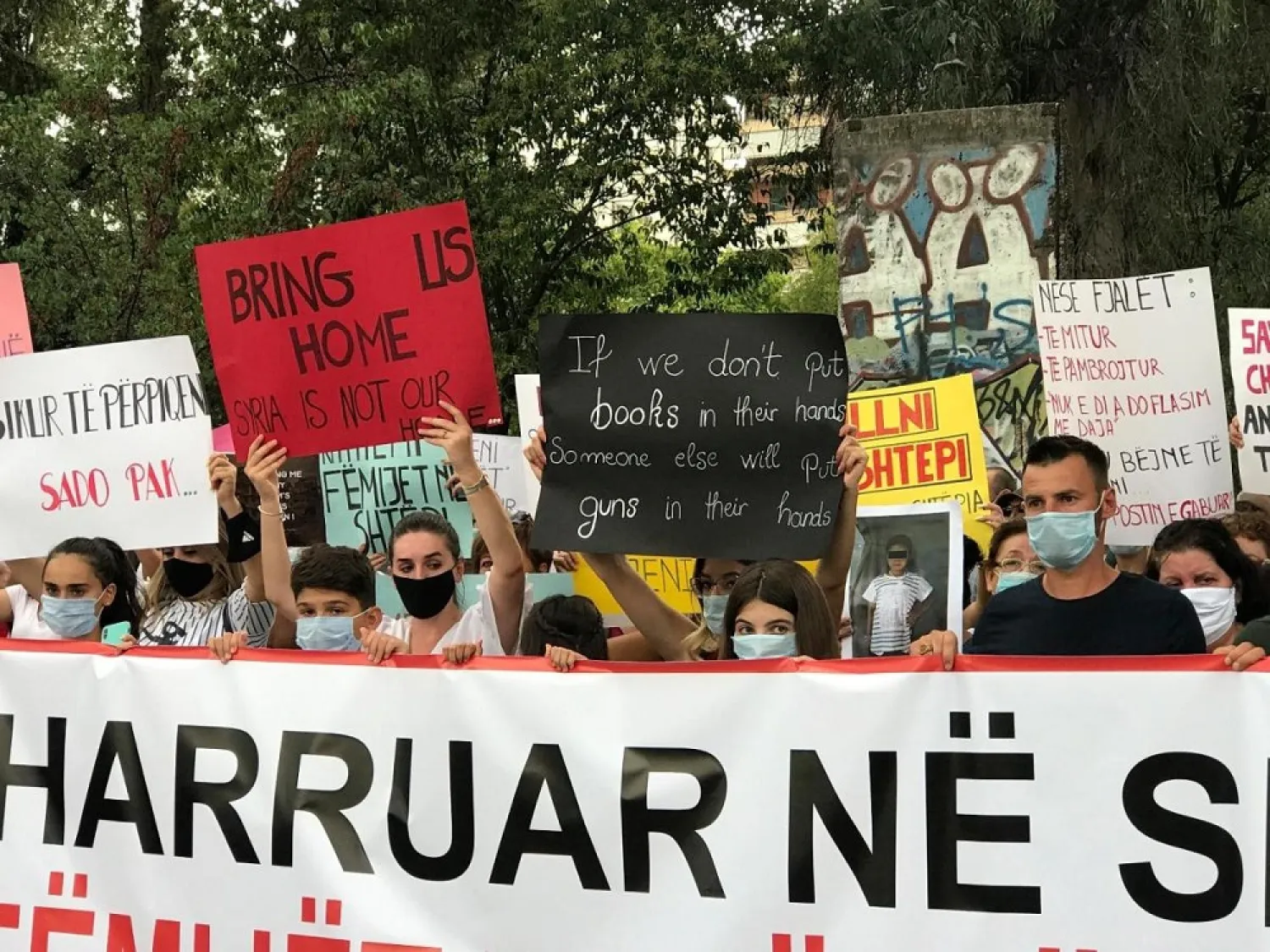Albanian family members protested Monday, demanding that the government bring back 52 children who have been stuck in Syria because their parents were extremists.
Scores of people gathered near the main government building in Tirana, the capital. Some carried placards calling for help, including one that read “Forgotten in Syria, turn our kids back home” — words they also chanted.
Police tried to disperse the crowd, reminding them that no gatherings were allowed due to the coronavirus pandemic.
Gjetan Ndregjoni, the uncle of Eva and Endri, described in tears how they were lost almost seven years ago and reiterated the family's determination to take them back.
In January 2014, Shkelzen Dumani secretly left Albania together with Eva, 6, and Endri, 8, to go to Syria through Turkey and join the ISIS group. Some six months later he was killed in fighting, and his mother Mentie then went to take care of the children. She died earlier this month and the children could not give the reason.
The two children have remained at the al-Hol refugee camp in Syria, and have contacted their mother Mide and uncle Gjetan by phone time and again.
“They always ask us on phone when the government will pick them up, like Kosovo, Bosnia did,” says Ndregjoni.
A few hundred Albanian men joined terror groups in Syria and Iraq in the early 2010s. Now many of them are dead and their women and children are stuck in Syria camps.
Albanian authorities say they are working hard to return all such children.
“A similar chorus we listen always: We are working, but we are seeing nothing,” said Ndregjoni, while his sister Mide, 43, stayed behind, ashamed to speak at all.
Authorities say no Albanians have joined extremist groups in Syria and Iraq in the last four to five years.









